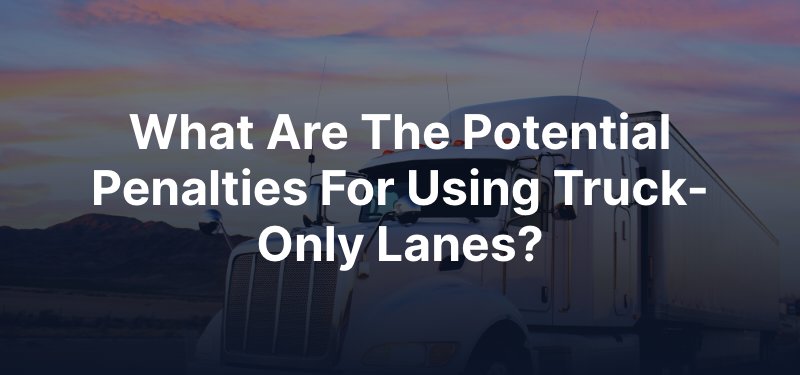In Missouri, the I-70 highway is a vital transportation corridor that sees many vehicles pass through every day, from passenger cars to heavy-duty semi-trucks. However, when large trucks and smaller vehicles share the road, the risks of accidents can be severe. To address these risks, the Missouri Department of Transportation (MoDOT) has long explored the potential of truck-only lanes on I-70.
These regulations may help reduce congestion and lower the risk of collisions, but they do come with a set of restrictions that affect commercial and passenger vehicles alike. Here is what you need to know about these additional lanes.
How Do Truck Lanes Work in Kansas City?
Truck lanes function by providing a designated roadway exclusively for truck traffic, thus separating them from lighter passenger vehicles. This separation is designed to reduce congestion and minimize the risks of collisions, ensuring a smoother and safer flow of traffic.
The concept allows trucks to access most Missouri locations via interchanges serving both trucks and other vehicles. Trucks would navigate between these dedicated lanes and general-use lanes through slip ramps, accessing interchanges from general-use lanes in some instances.
What Counts as a “Truck” in a Truck Lane?
The term “truck” in the context of truck lanes typically refers to commercial vehicles utilized for transporting goods. These trucks are characterized by having three or more axles and a weight exceeding 22,000 pounds. Other vehicles not meeting these criteria are prohibited from using these designated lanes, ensuring they remain exclusively for heavy commercial use.
Are Trucks Still Allowed to Use Other Lanes?
Although truck-only lanes are a novel approach, trucks are still allowed to use other lanes under certain conditions. For instance, trucks covering short distances or accessing local interchanges will continue to travel in lanes shared with passenger vehicles. This flexibility ensures that the implementation of truck-only lanes does not impede the operational efficiency of trucking routes.
The enforcement of regulations pertaining to truck-only lanes falls to state and local law enforcement agencies. Improper use of these lanes by unauthorized vehicles may result in fines or penalties, although these will need to be defined by the appropriate lawmakers.
What to Do If You Are Injured in a Kansas City Truck Accident
Sharing the road with large trucks carries many risks for all road users, and it is everyone’s responsibility to ensure traffic safety. Unfortunately, accidents do happen, and when they involve a semi-truck, the consequences can be catastrophic. If you are injured in a Kansas City truck collision, you have the right to pursue legal action and recover compensation for the damages that you incurred.
To protect yourself and your legal rights after the accident, take the following steps:
- Call 911 and report the accident to law enforcement.
- Seek medical care as soon as possible, even if you do not feel injured. Some injuries may take a while to show symptoms.
- Gather as much evidence as possible, if your condition allows. Take photos and videos, speak to witnesses, and exchange your information with the other driver.
- After the accident, save all documents related to the accident and your injuries. These include medical records and journal entries.
- Contact a Kansas City truck accident lawyer to discuss your legal options.
An attorney can help you file your claim and secure the compensation that you deserve. Schedule a free legal consultation as soon as possible to take your first steps toward recovery.
